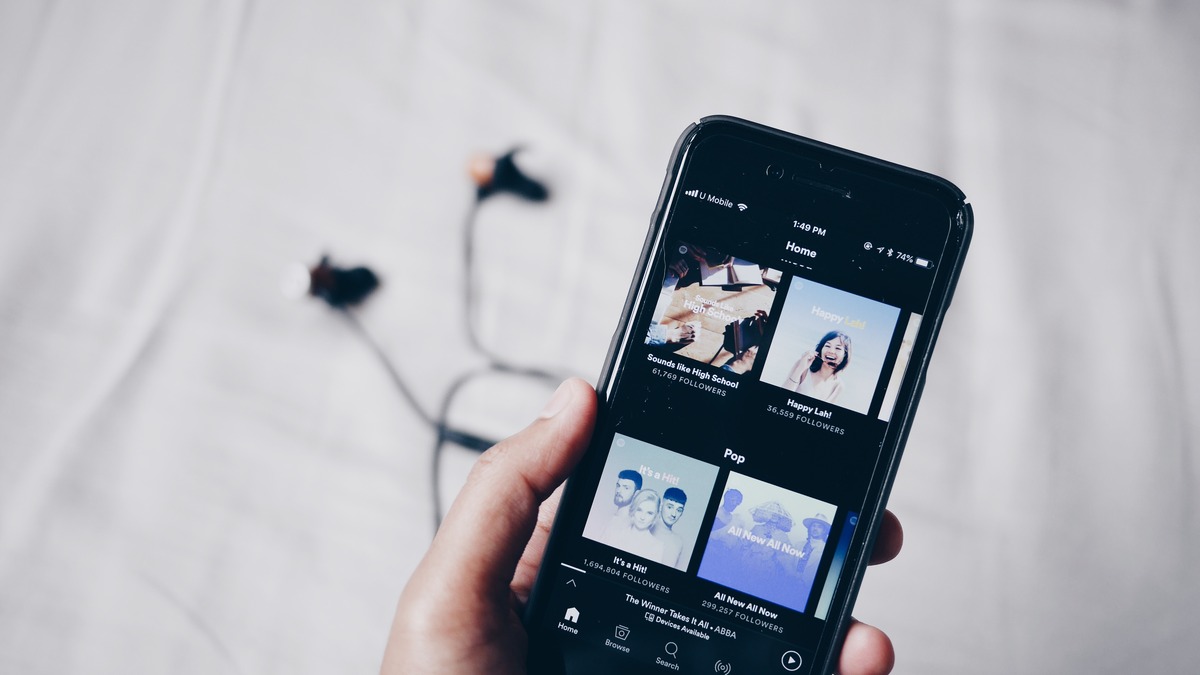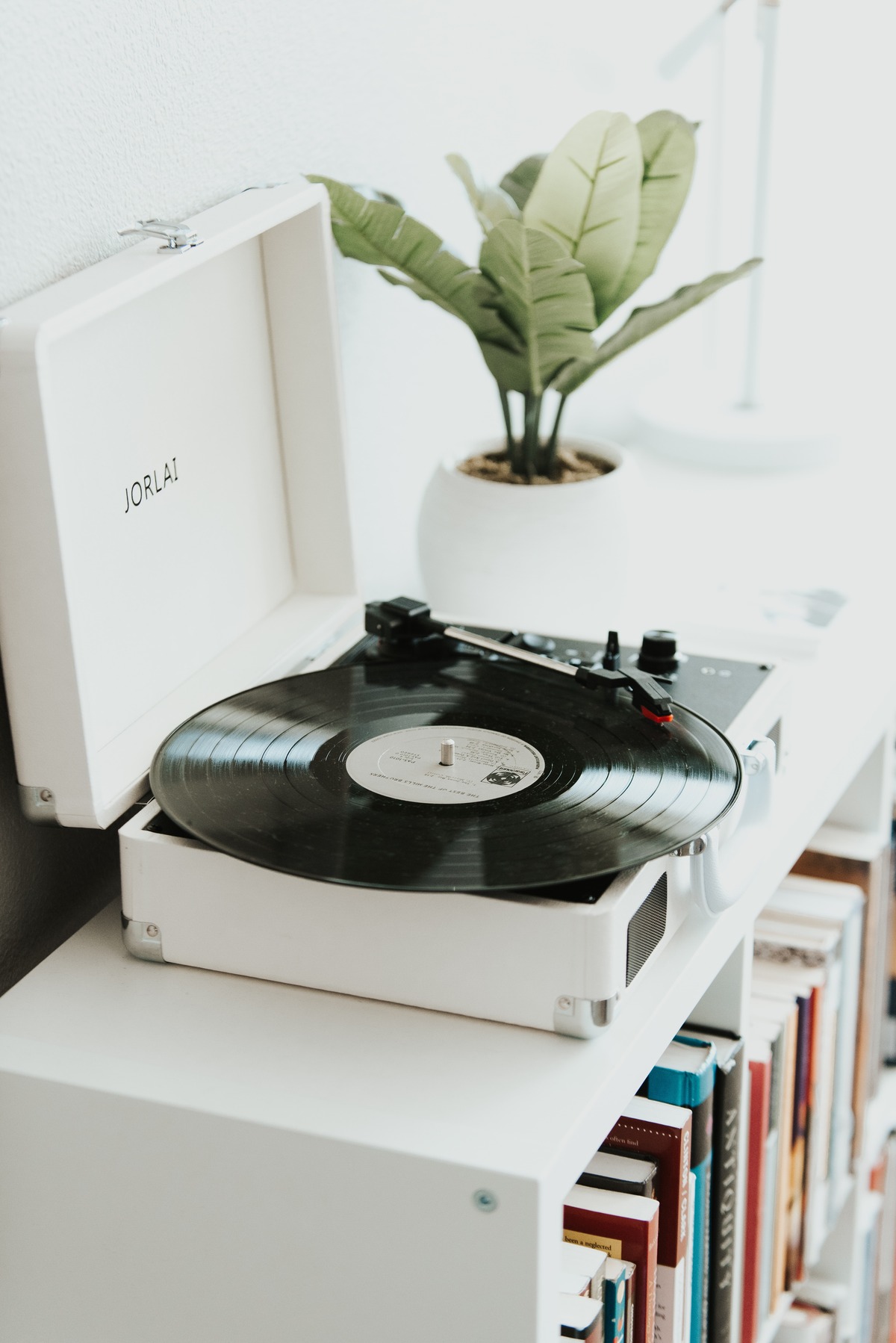A Sustainable Music Industry | Should you get rid of your vinyl?
The global music industry nowadays faces a dilemma on sustainability: Is streaming music online eco-friendlier than buying physical records?
To receive the Luxiders Newsletter, sign up here.
You might be familiar with the saying “Music on, world off” – especially since the golden age of Tumblr was full of users reblogging this quote. However, the recent actions taken by artists, platforms, users, and record labels show that an alternate way is possible. You can still enjoy your music without connecting to the world, but there is now a chance to keep the world “on”. It’s all about the division between online streaming platforms and buying physical copies of albums. After the meteoric rise of online streaming platforms like Spotify, Apple Music, Youtube, and Deezer; the industry observed a great decrease in the sales of physical music. An article by Forbes states that a decrease of 100 million in disc sales was observed in the last 10 years. When looking at the stats of Spotify users in the last 7 years, a growth of 500 percent is calculated with the current 433 million users. Then we better admit it: Yes, it is happening. We are getting rid of the physical records.

© Unsplash
PHYSICAL RECORDS AND ECO-FRIENDLINESS
The music we used to buy and put on our players witnessed a material transformation throughout the decades. The former Shellac records were not that durable to damages caused by liquids. Thus, PVC-made CDs emerged to replace them. The new plastic music discs were now longer lasting and there was a lot less risk of getting damaged when having a wine-dine-music moment. Due to their plastic containment, they were also harder to get broken. Though it sounds perfect in theory, its burden on the ecosystem became heavier. The Conversation states that those PVC-made discs often contain 135g of PVC – which results in 0.5kg of CO2. The source supports the information with a heartbreaking fact: A 4.1 million-selling record causes almost 2 tons of CO2, even without calculating the transport and packaging. It means that your favorite artist might drop a new record and be successful with great sales, but it will damage the ecosystem equal to 400 people per year. Is it worth it?
REJECTING THE TRADITION
Over the last few years, some artists and record labels tried to come up with solutions to the enormous carbon footprint issue of physical albums. The massive industry of K-Pop was an initiative. They basically rejected the tradition and embraced modernity: JYP Entertainment which represents artists like TWICE, Stray Kids, and ITZY announced that they will start to release digital-only albums. The label stated that this decision will reduce their carbon footprint and contribute to saving the environment. Another artist that came with a similar move was the New Zealander indie-pop musician Lorde. As she published her third studio album “Solar Power” in 2021, she stated that there will be no physical copies of the record. Since her album is based on themes around sustainability and ecology, she expressed that it would be better off to stay loyal to her artistic vision.
Still, the artists keep acknowledging the fact that their fans want materials to feel being part of the musical journey, or the so-called “era” of an artist. Both Lorde and JYP Entertainment have come up with similar solutions to that: Even though they would not produce PVC-included discs, they have launched music boxes that contain QR codes to stream the music, some handwritten notes, and photographs from the album shootings. The motivation behind this was to protect the connection between artists and fans when standing against massive carbon emissions.

© Unsplash
WILL DIGITAL MUSIC BE THE SAVIOR?
Although the reduction of physical records seems an eco-friendly choice, we must remember it is important to question the other side. At that point, we should know how digital music streaming works. According to The Conversation, our music files are placed on active servers. Those files are transmitted by Wi-Fi every time we stream music and this happens through approximately 107 kilowatt hours of electricity per year. Compared to the CD players, it results in 3 times higher costs to run. Considering that buying records or vinyl is a one-time thing that costs carbon, streaming online is a continuous use of energy. In this sense, deciding based on your listening habits in this dilemma would be the most optimal choice.
If you are a listener who likes to explore new tracks and stream any track two or three times, then digital streaming is for you: Because discovering new music by buying physical copies will result in higher carbon emissions. When it comes to podcasts, it is a must to stream them online. But if you identify as a passionate listener who loves to stream the same record repeatedly, preferring physical copies might still be the best of the worst. So, what we need to do is analyze our listening habits and act accordingly, when remembering the world is changing. While this change affects all industries, we are facing several options to show more respect to the environment day by day. At this point, your personal action will matter more than you can imagine. As well as a more sustainable experience of listening to music is possible, a more sustainable world is, too.
Highlight Image:
© Charlie Alcaraz via Unsplash
Words:
Tolga Rahmalaroglu
Luxiders Magazine




